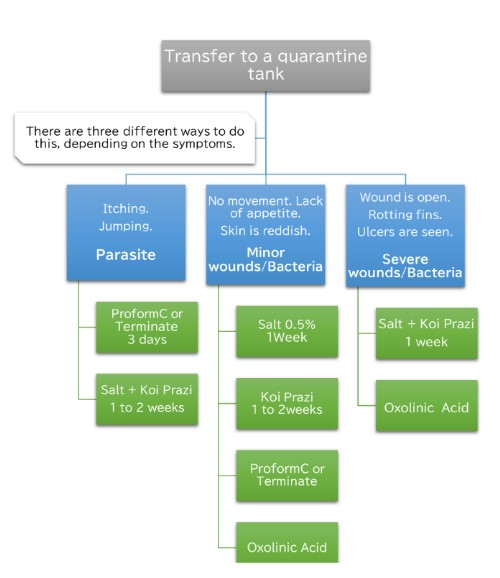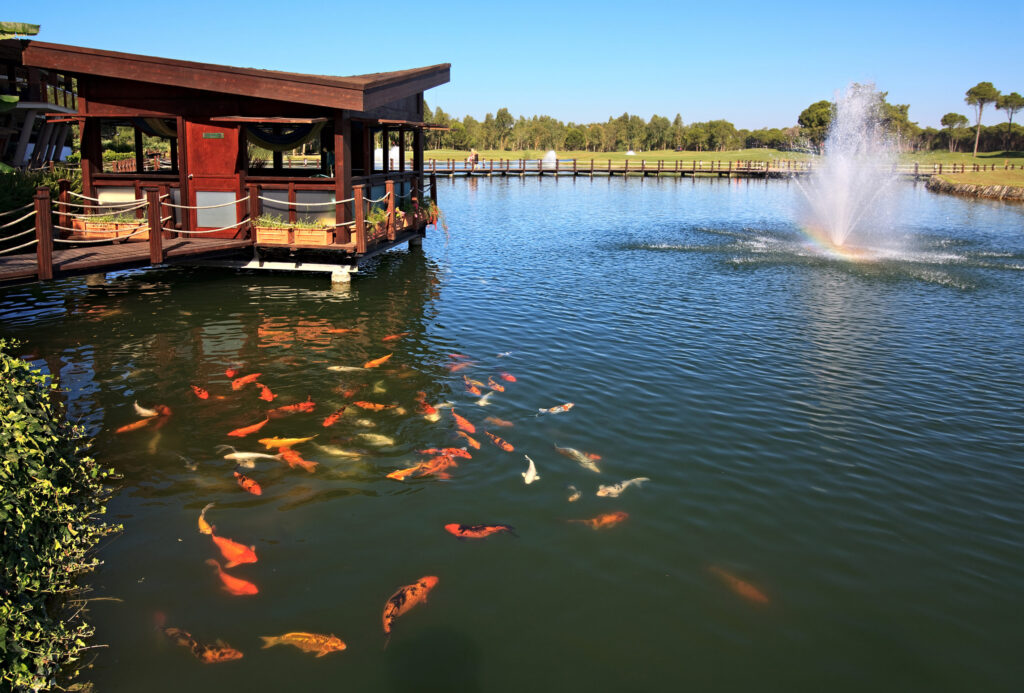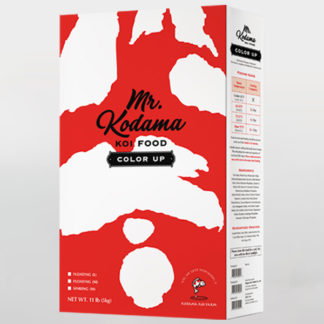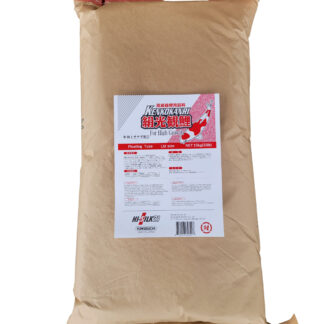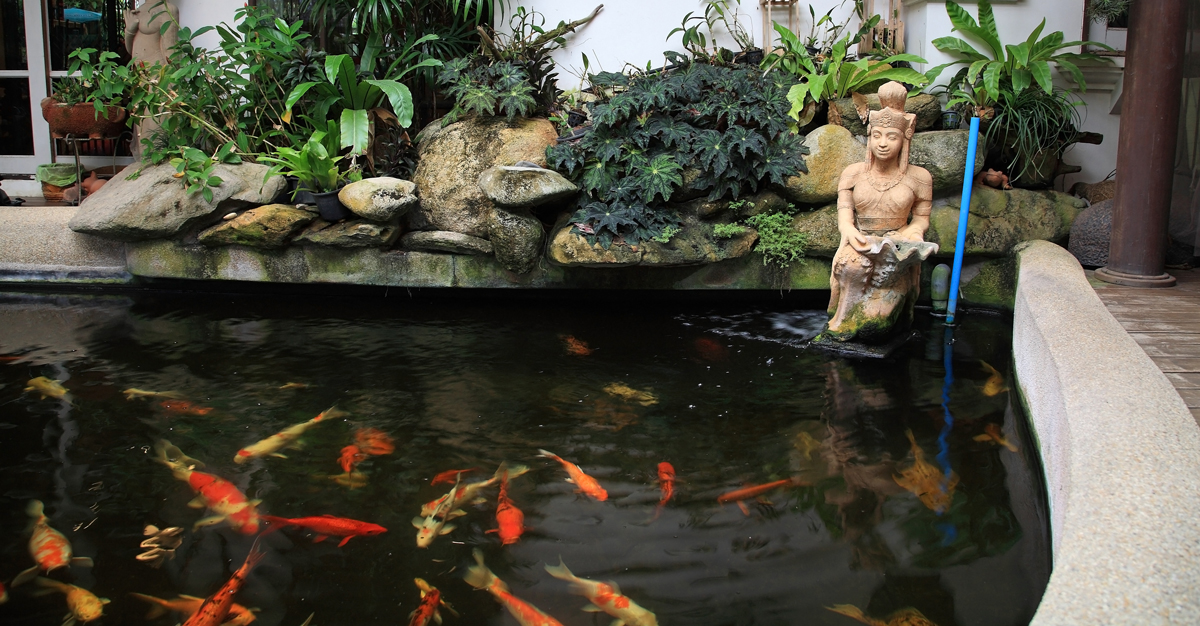
Is your koi facing health challenges that require proper attention and medication at times? Are you unsure what kind of medicine you should use if your koi is sick? In this discussion, we will delve into the topic of koi medication, exploring koi disease treatment, fish health management, pond fish medication, fish disease prevention, and pond water quality treatment. We aim to help you diagnose your koi and teach you proper medication and treatment.
What causes koi fish diseases?
Koi fish diseases are often caused by stress, poor water quality, and pathogen exposure. Stress from overcrowding, fluctuating temperatures, or sudden environmental changes weakens their immune system. Poor water quality, including high ammonia, nitrite, or pH imbalances, creates a breeding ground for harmful bacteria and parasites. Pathogens like bacteria, viruses, fungi, and parasites can infiltrate through open wounds or contaminated water. Additionally, introducing new, unquarantined fish can spread infections. To prevent diseases, maintain clean water, ensure stable conditions, and quarantine new arrivals. A balanced diet and proper pond care are essential for healthy, thriving koi.
At Kodama Koi Farm, we are also here to assist you in learning and gaining a deeper understanding of how to keep your koi and pond in optimal health. So, let’s learn about the challenges for koi, their causes, treatments, the right medications, and preventions to ensure that the health of your koi and pond is always at its best.
Purchase Koi Medication to keep your fish healthy and your pond in great condition.
Koi Medication: Proper Treatment and Prevention for Koi Illness
Like any living creature, Koi are susceptible to various illnesses and diseases. To ensure the longevity and vibrancy of your beloved Koi, it is crucial to understand proper treatment and prevention methods. Today is your lucky day, as we are eager to share our effective products and practices with you. We have a wealth of knowledge and products to offer, encompassing the treatment and prevention of Koi illnesses. Rest assured, we will provide you with comprehensive insights to keep your Koi in optimal health.
First Steps to Take When Your Koi is Sick
It can be disastrous to see your fish get sick and you want to be able to move quickly to resolve the current situation and save as many fish as you can. It is imperative to move your sick koi to a quarantine tank as soon as possible when you notice they are in poor condition. Quarantining your sick koi fish will protect your other healthy fish in the pond and giving the fish time to recover to full health before returning to the pond.
Quarantining your koi that seem to be sick will ensure the possible disease does not spread to your other fish and allows you to treat them specially. You will want to set up a koi quarantine tank system if you do not already have one. Here there are more tips on how to set up a koi quarantine and more information on this subject.
Is Your Koi Swimming Erratically?
It is devastating to see your koi / carp friends sick, and trying to find quick answers or pictures of sick koi can become overwhelming. Use our quick reference koi health checklist, table of symptoms, and table of diseases to diagnose your koi’s diseases better.
Changes in behavior, such as erratic swimming, koi swimming upside down, abnormal feeding patterns or isolating themselves from others can indicate that your koi fish is sick.
Physical symptoms like red gills, cloudy or popped eyes, and swollen abdomen are used to correctly diagnose koi fish diseases.
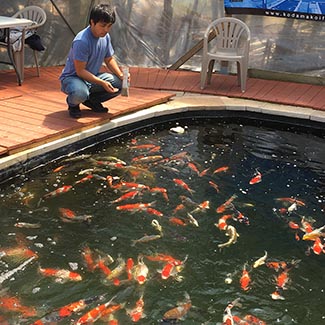
Symptoms of Sick Koi and How to Treat Them
There are three basic ways to detect what is wrong with your koi fish depending on their symptoms. There are simple solutions to be offered for each category. Here are the 12 most common koi diseases. Read more about each disease and as a bonus, we have included treatments for each of them.
1. Parasites – This symptom is clear when the KOI itches, jumps or rubs itself on the edge of the pond. Your koi may be jumping or rubbing their bodies on the edge of the pond.If you see this happening, use Proform-C or Terminate, then change the water and use salt and Koi Prazi.
2. Bacteria – Mild Symptoms – If your KOI is still, spaced out, not moving, not eating, or has a reddish skin color, they are likely experiencing mild symptoms of bacteria. You will first want to add 0.5% salt. If the symptoms do not improve after about a week of observation, use Koi Prazi. If the symptoms still do not improve, use ProForm-C or Terminate. One last option if nothing else works is to use Oxolinic Acid.
3. Bacteria – Severe Symptoms – While you never want to see this, severe symptoms may occur in your koi. If they have wounds that are open or have rotting fins the symptoms are getting more severe. Ulcers may indicate that the fish has been attacked by bacterial organisms. Like with mild symptoms, start with adding .5% salt and also use Koi Prazi and watch for a week. If it does not get better within that week, use Oxolinic Acid.
PRO TIP: Salt can be used for all symptoms of sick koi fish. Salt is what we call an infusion; it builds up the koi’s own strength and it aims at natural healing power and self-cleansing. When salt is added, the osmotic pressure makes it easier for Koi to exchange water and body fluids which reduces the stress of your koi.
While salt does not cure diseases, it helps make your koi healthy and assist koi itself in cures diseases. People who use salt for the first time are surprised at the amount of 0.5% salt. If the symptoms of koi are severe, 0.6% salt may be used.
Proform-C and Terminate should not be used with salt. If they are to be administered, use them before adding the salt treatment. If salt is already in the water when you use Proform-C or Terminate, it is important to change the water before use.
Ailments and Diseases Affecting Koi in Unhealthy Ponds
There are a few common diseases associated with poor water quality, one being “Ammonia Poisoning” or “Ammonia Burn.” Ammonia is released as a byproduct of fish waste and decaying organic matter in the pond. When ammonia levels become elevated due to inadequate filtration or excessive fish load, it can cause damage to the gills, skin, and overall health of the koi.
Another disease associated with poor water conditions is “Dropsy” or “Pinecone Disease.” Dropsy is often a symptom of an underlying issue, such as poor water quality, bacterial infection, or organ failure. It causes the koi’s body to swell due to fluid accumulation like edema, and the scales may protrude, resembling a pinecone.
Additionally, “Fin Rot” can occur in koi living in unhealthy water. It is usually caused by bacteria, such as Aeromonas or Pseudomonas, which thrive in poor water conditions. Fin Rot causes the deterioration of the fins, making them appear ragged, frayed, or eroded.
Other diseases that can be exacerbated by poor water quality include “Ich” (Ichthyophthirius multifiliis), a parasitic infection causing white spots on the fish’s body, and “Ulcer Disease,” which leads to open sores or ulcers on the skin.
Click this ‘Is My Koi Sick?‘ Article to Learn More About Koi Challenges, Diseases, Diagnoses, and Proper Treatment for Koi Ailments
Unhealthy Ponds are Often the Leading Cause of Koi Disease
Even though our pond water may require treatment, it is important to understand that unhealthy water conditions can have adverse effects on our Koi, potentially leading to diseases.
The health of a pond directly affects the well-being of koi fish. Poor water quality, insufficient oxygen levels, and inadequate filtration can lead to stress, weakened immune systems, and increased susceptibility to diseases in koi. Maintaining optimal pond health involves monitoring water quality, ensuring proper oxygenation, employing an efficient filtration system, and practicing disease prevention measures. A healthy pond environment reduces stress, promotes stronger immune systems, and contributes to the overall health of koi fish.
To learn more about koi and pond water health, visit our KOI Medication Page and see our top quality and proven effective water treatment products. You may also visit our pond equipment page and look at our pond products that can improve your koi and pond health.
Meeting Your Pond’s Basic Needs
To maintain a healthy pond environment for koi, it is essential to monitor water parameters such as ammonia, nitrite, nitrate, pH, and temperature regularly. Implementing proper filtration, regular water changes, and providing adequate aeration can help prevent the occurrence of these diseases and promote the well-being of your koi fish.
It is our passion and goal to share the knowledge and products we have. Our koi expertise and pond products have been developed and tested over many years, proving to improve the lives of your koi and the health of your pond. As one of the largest suppliers of Koi and Pond supplies, we offer everything you need, from filtration systems and water treatment products to Koi foods, treats, vitamins, medicines, as well as learning guides and books. We have it all for you.
Visit our KODAMA SUPPLY PAGE now and explore our wide range of koi and pond products. Enjoy a hassle-free shopping experience, and rest assured that we are just one click away to assist you with any questions you may have
Tips to Prevent Disease in Koi Fish
- Measuring the amount of water in a pond can be difficult, but that’s where this is where a Koi Medic Salt Meter comes in handy.Use a densitometer to determine what percentage of salt is in the water.Too much salt an kill koi, but if there is too little, it will not work.
- Use a biological formula of naturally occurring bacteria, enzymes and micro nutrients like KoiZyme. This is effective in preventing bacterial diseases in your precious koi fish. KoiZyme is a bacterium that is harmless to koi. These bacteria compete for food with bacteria that are harmful to koi fish Then, the bacteria that are harmful to the koi are eliminated and only the bacteria that are harmless to the koi are left. Regular use of KoiZyme is recommended.
- Disinfect the area when the water temperature changes from winter to spring, from spring to rainy season, and from fall to winter. Preparing for the changes in weather including building a cover in winter will help the longevity of the survival of your koi fish.
Still Wondering if Your Koi is Sick?
We’ve got you covered! Get the answers and a FREE Health Checklist.
Just like you, we are worried about our precious koi when they get sick. If your koi that you purchased from Kodama Koi Farm becomes sick, please send us a photo or video and we will diagnose the problem.
Koi, just like humans, can get sick or become unwell. When this happens, please do not panic, but take the correct treatment so that your KOI can live a comfortable and healthy life!
Watch this quick video guide from Taro Kodama on treating Koi fish illnesses!
Popular Koi Medication
-
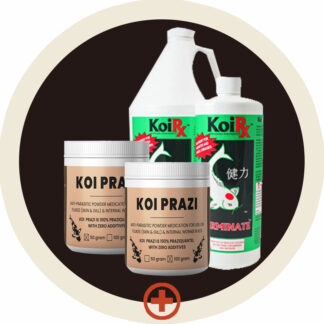
Koi Essentials Kit 2: Water Treatment Kit
$82.99 – $169.00 Select options -
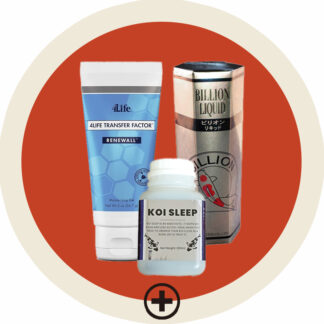
Koi Treatment Kit
$129.00 Read more -
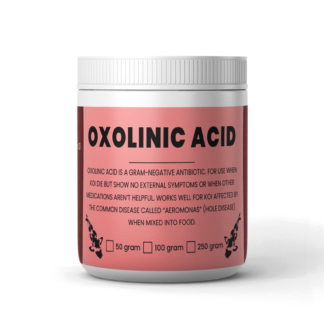
Oxolinic Acid
$75.00 – $215.00 Select options -
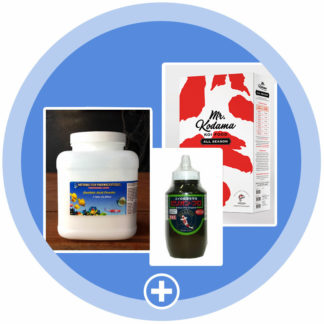
Koi Remedy Food Kit
$245.70 – $413.10 Select options -
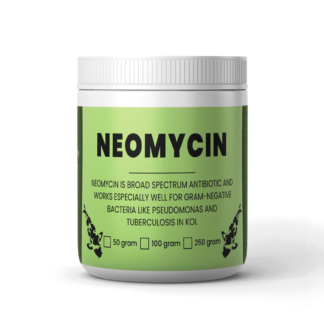
Neomycin Sulfate Powder
$41.00 – $127.00 Select options -
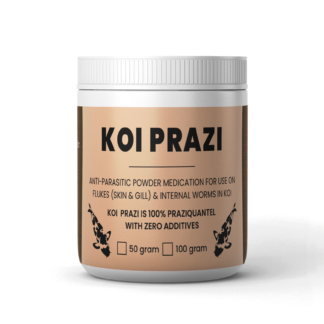
Koi Prazi
$50.00 – $100.00 Select options -
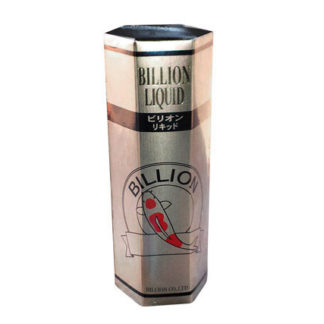
Billion Liquid
$95.00 Add to cart

